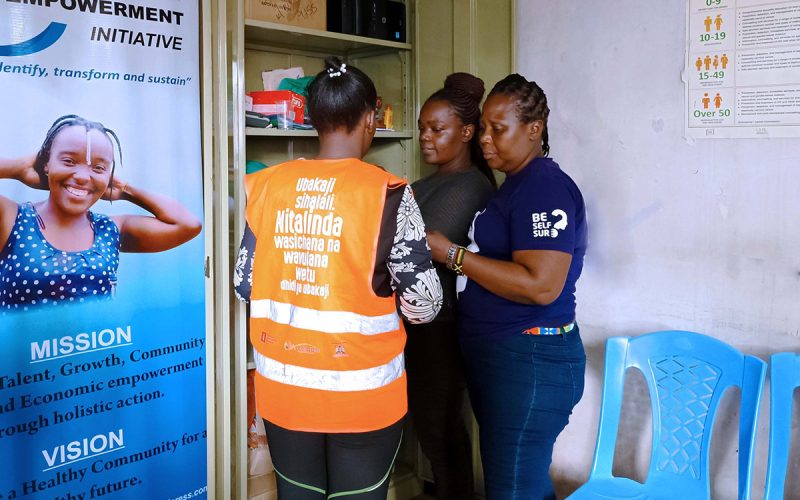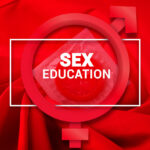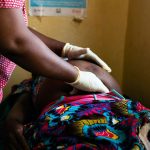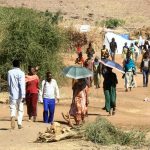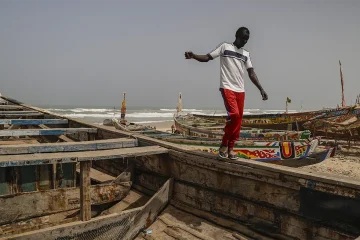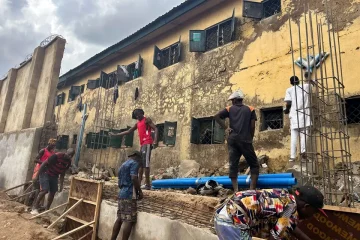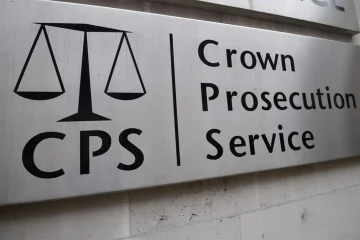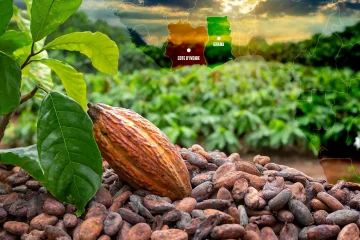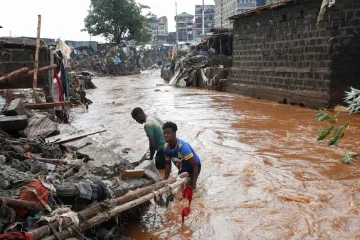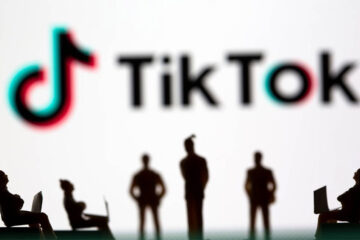NDUTA WAWERU
IN Nairobi’s sprawling Githurai estate, a shipping container-built complex is attracting local residents – both young and old. Initially built to help combat a drug problem, the complex became popular when it switched to offering a new product: reproductive health services.
The centre has become a one-stop resource centre for many young people in the neighbourhood, including Joan Mutheu, also known as J Diva or MDQ.
“As one of the many young people in the area, any discussion about sexual and reproductive health with our parents is a no-go zone. There are some things I could not ask my mother about my body or sex,” Mutheu explained.

Mutheu shared that her mother was a harsh disciplinarian who did not entertain any ill-discipline at home. When Joan became a teenager, her mother issued a decree; ‘Cheza na mwanamume, ukipata mimba jua kule utaipeleka (If you play around with boys and get pregnant, you better know where you’ll take that pregnancy).’
The decree, compounded with the fact that Mutheu came from a poor background where raising school fees was a problem, was sufficient to instil fear in her.
“I knew if I messed up and got pregnant while still in school, I would not get a second chance at education and would probably be kicked out of home,” Mutheu narrated.
This, she said, was the situation for most girls in the area. There was no way to discuss sexual and reproductive health (SRHR) issues with their parents or teachers. Consequently, they were making uninformed decisions that put them at risk of pregnancy, and sexually transmitted infections, including HIV. They were also exposed to sexual and gender-based violence (SGBV).
The situation was made worse by the lack of guiding policies at a national level. The government is currently reviewing the National Adolescent Sexual and Reproductive Health Policy to ensure adolescents have access to comprehensive SRHR information and services. Some objectives in the policy include the reduction of sexually-transmitted infections, early and unintended pregnancies, harmful traditional practices, drug use and abuse, and SGBV.
The Githurai Youth Empowerment Centre is divided into different sections, including an office, consulting rooms and open areas, allowing groups from the area to use the facility for their activities, all under the umbrella of Link Youth Empowerment Group, which is the centre’s caretaker.
“We started this facility in 2013 as a rehabilitation centre,” explained Lucy Arunga, Link Youth Empowerment Group treasurer. “We thought many young people were abusing drugs, but upon investigation, we discovered several things: gender-based violence was everywhere in the community, teen pregnancies were high, and that family planning was needed because young people were sexually active,” Aruga narrates.
“This information showed a need for comprehensive sexual and reproductive health services.”

Another stark revelation was that the neighbourhood did not have a public health or resource centre. Many residents have to travel farther to receive services or dig deeper into their pockets to access care at private medical facilities.
“Because of this, visitors come to the centre to ask for all types of services – most of which we cannot offer, such as handling crimes and medical conditions. We then have to refer them to other service providers,” explained Arunga.
In July 2022, Kenya launched the Reproductive Health Policy 2022 –2032. The policy aims to improve Kenyans’ reproductive health, including reducing maternal, perinatal, and neonatal morbidity and mortality, addressing unmet family planning needs, and reducing the HIV and AID burden, among others. It is also aimed at improving reproductive health outcomes among adolescents and young people.
However, the policy was returned to the drawing board following complaints from civil society organisations stating that they were not included in its deliberations and development of the policy framework.
There were also concerns that the document did not provide for adolescents’ needs, including access to safe and legal abortion as provided by the Constitution of Kenya 2010.
The World Health Organisation places the number of girls aged 15–19 years who give birth yearly in developing regions at approximately 12 million. For girls under 15, the number stands at 777,000. According to the health agency, West Africa accounts for the second-highest number of births in the world.
In Kenya, the National Aids Control Council World Aids Day report indicated that over 331,000 young girls aged 10-19 in the country were pregnant as of 2020, and 61 percent of young people aged 15-29 contributed to new HIV infections in 2020. The report further showed that in 2020, 54 percent of all sexual violence cases reported were among girls aged 12- 17.

Facilities like Githurai Youth Empowerment Centre have become vital to addressing the issues behind those numbers, explained Mutheu, who is now a peer mentor and trainer and member of Small Axe, one of the youth groups located at the centre.
“I was a very shy girl. I could not stand in front of people and talk to them about anything,” she said. “But after joining the Small Axe youth group, things changed.”
Small Axe focuses on environmental conservation. Their activities include tree planting, river cleaning up, and recycling waste. Through the group, whose activities are incorporated into the youth centre’s general programs and events, Mutheu was introduced to sexual and reproductive health and economic empowerment.
She was also trained as a trainer by civil society organisations such as Deutsche Stiftung Weltbevölkerung (DSW) Kenya, Population Services Kenya, and International Centre for Reproductive health, among others.
“Now I train other groups within the centre and the neighbourhood on various topics including peer pressure, self-esteem, and menstrual hygiene, among others,” she explained.
Fortunately, Arunga said, the community has embraced the centre because of the safe space it offers.
“Parents allow their children to come here and hang out because they will learn a skill or two or get informed on various topics,” she stated.

The centre also supports a sports group through which the youth are mentored as they earn skills in various sports. Other programmes include income-generating activities such as beadwork and art.
Besides peer mentorship and skills training, the centre also offers sexual and reproductive health services twice a month. They have partnered with the Nairobi County Government and the Ministry of Health, which provides health care providers with skills to offer the necessary services.
Beatrice Kagiri, one of the health service providers, said they offer contraception services- both long and short term, cervical cancer screening and HIV counseling and testing at the centre. They do this with their customers’ needs in mind to get the best outcomes.
“Young people are good to work with as long as you have understood their needs. Some earlier barriers I encountered when I started working with them was the age gap. They have this perception that older people do not know anything. But once a health care provider shows they are friendly and steps in their shoes, young people embrace them easily,” she explained.
Kagiri says most young people who come to her for services were not ready to have children. Many have faced or seen others face the stigma of being teen parents and have come across various myths and misconceptions about family planning.
Her sentiments are shared by Catherine Njagi, an HIV counsellor at the youth centre. Njagi receives young people of all ages to counsel and give tests.
“Most of them come to the centre in groups, and once you have convinced one of them to take the test, the rest get on board,” Njagi explains.

A significant part of her work as a counsellor is to let young people know that HIV infection is not the end of life and to encourage people to know their status. She advises them to accept their status and adhere to treatment regimes.
Fortunately, she said, most young people in the neighbourhood accept condom use.
“Every time they see me doing outreach, they ask me for ‘majembe’ (digging tool) – their term for condoms,” Njagi says with a chuckle.
The outreach has also contributed to getting young people to test themselves in the comfort of their homes. In 2017, Kenya launched an HIV self-testing kit to encourage testing.
“Besides self-testing under the Chukua Selfie (Take a selfie) campaign, we also conduct family planning and cancer screening outreach to reach out to young people who can’t make it to the centre for one reason or another,” explained Arunga.
One of the new programmes they have incorporated at the centre is sexual and gender-based violence (SGBV), which aims at educating the community. Their main aim is to create awareness about the different types of violence and the devastating consequences, which can have lifelong repercussions for survivors. It can even lead to death.
So far, the centre has reached more than 1,000 young people through its various activities. It has also become a resource centre for the community.
However, the centre has had a few setbacks.

“With the onset of Covid-19, most of our donor-funded programmes came to a stop, and some have not yet picked up,” Arunga says.
They also have had to deal with myths and misconceptions about family planning, including that it could put one at risk of health problems such as terminal diseases and that it could lead to infertility, especially if used long-term. They have also had to contend with high demand for services, a lack of supporting service providers, and general harassment.
“Sometimes, our members face sexual harassment when we go for outreach. During an outreach on HIV testing, one individual asked whether they could have sex with a peer educator if they accepted testing and turned out negative. Such are the things we have to contend with,” Arunga explained.
The challenges have not deterred them from making the youth centre more accessible and acceptable to the community and other stakeholders, however.
They now plan to expand the space to include a computer lab, a workshop, and equipped art space. To achieve all this, they are constantly seeking support from various stakeholders.
“Young people would benefit from more training since information flows to other youth faster. The community should also come on board and support the centre in busting myths and misconceptions about SRHR and HIV,” Arunga added.
Notably, she said, the government – both at the national and county level– should include young people in policies on SRHR.
“Some policies are very restrictive, which means they are leaving out a certain age group of youth, yet the young people are sexually active and need to be factored in these policies,” Arunga said.
[This story was provided to bird by Storify, an agency under Africa No Filter]

